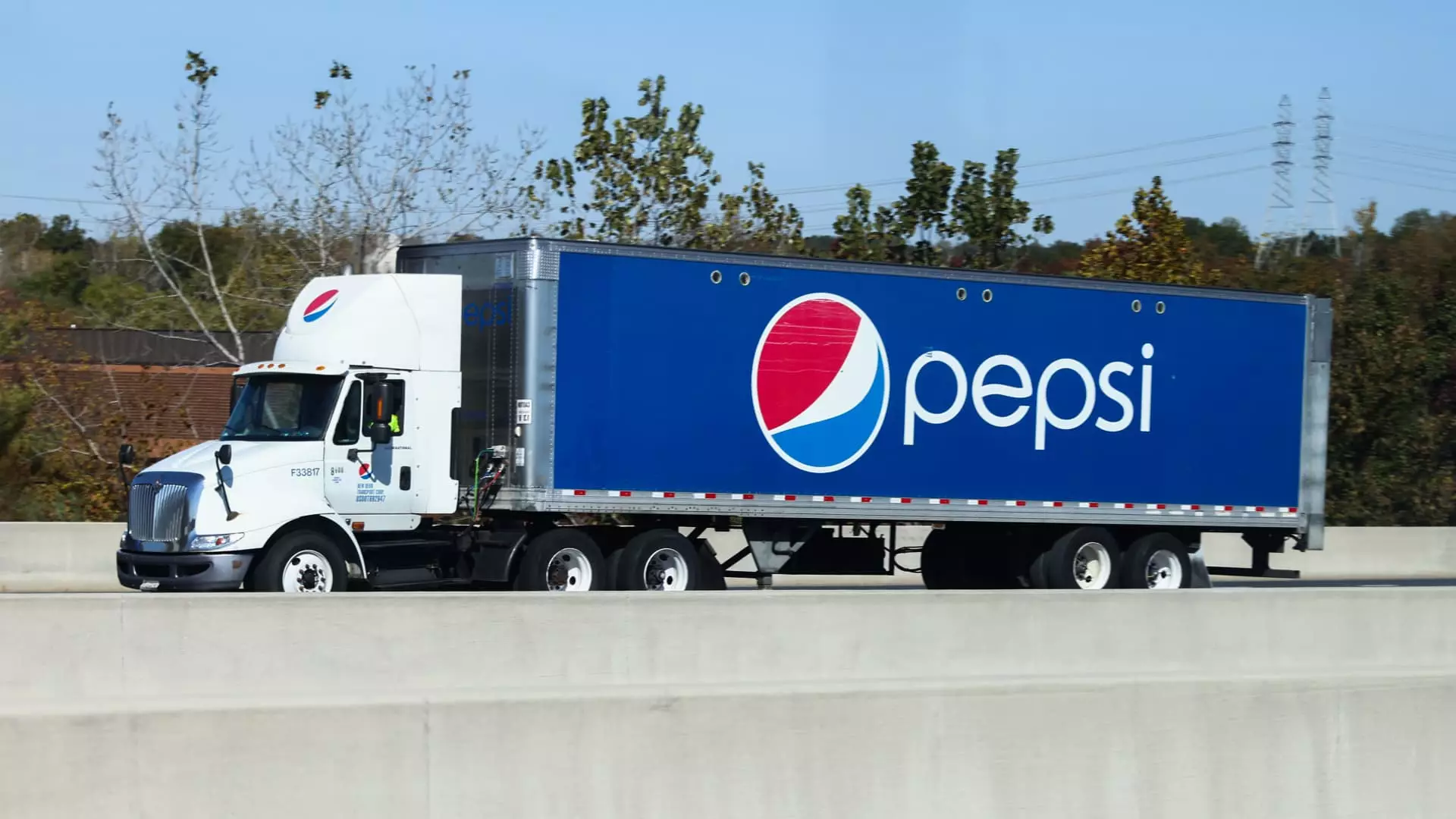In recent weeks, PepsiCo has experienced a notable decline in its financial outlook, prompting concerns among investors and analysts alike. The announcement to lower its full-year organic revenue forecast can largely be attributed to a series of challenges that have compounded over the past couple of quarters. The company, which has long stood as a titan in the food and beverage industry, is now navigating turbulent waters, marked by lackluster sales, recalls, and shifting consumer preferences. This article examines the underlying factors contributing to PepsiCo’s struggles and the implications for its future.
PepsiCo’s recent report painted a sobering picture. The company faced a contraction in sales, with organic revenue growth predictions slashed from an optimistic 4% to a more modest low-single-digit rise for 2024. Notably, the adjusted earnings per share came in at $2.31, slightly above analysts’ expectations of $2.29, yet this small victory did little to mask deeper issues. Revenue for the latest quarter totaled $23.32 billion—a decrease from the anticipated $23.76 billion. Furthermore, net income fell to $2.93 billion or $2.13 per share, down from $3.09 billion or $2.24 per share a year prior, serving as a stark reminder of the changing market dynamics.
One of the most significant hurdles PepsiCo faces arises from the Quaker Foods North America recalls, which began in December due to potential salmonella contamination. This situation has not only led to the shuttering of one of its plants but also triggered a significant erosion of consumer trust. With a steep 13% decline in volume for this division, consumers appear to be re-evaluating their loyalty to a brand traditionally known for its reliability. This scenario reflects broader trends wherein shoppers at all income levels are reportedly altering their purchasing behaviors, opting for alternative snacks and beverages.
PepsiCo’s divisions have exhibited a dichotomy in performance, with areas like Frito-Lay North America also feeling the pinch. Although the company’s snacks, such as Cheetos and SunChips, have strived to enhance their in-store availability and offer more value to consumers, these measures have resulted in merely a 1.5% decline in volume. This inability to recapture lost sales reveals that even with strategic initiatives, the broader category is underperforming, raising questions about PepsiCo’s long-term positioning in the competitive landscape.
Conversely, some brands like Gatorade and the flagship Pepsi beverage did experience revenue growth, suggesting that pockets of opportunity remain within the company. However, it is crucial to consider that Pepsi’s North American beverage operations saw a volume decrease of 3%, highlighting the challenge of reinvigorating sales across its entirety. The company also faces stiff competition from emerging market players, as well as health-oriented options that resonate with a more health-conscious consumer base.
Expanding the analysis to PepsiCo’s international performance reveals a broader struggle, with contractions reported in critical markets such as Latin America and several countries in Africa, the Middle East, and South Asia. The disruptions and lowered demand across these regions underscore the complexities of the global market, indicating that the challenges facing PepsiCo transcend domestic affairs. The company’s reliance on international diversification has not been as panacea-like as previously anticipated.
As PepsiCo re-calibrates its growth strategy, it must focus on rebuilding consumer trust, particularly in its Quaker Foods segment. The CEO, Ramón Laguarta, and CFO, Jamie Caulfield, expressed optimism about the diminishing impacts of the recalls, suggesting a gradual return to norms. Nevertheless, the journey toward recuperation will require not only restoring quality and reliability but also innovating to meet evolving consumer preferences. Adapting offerings to embrace healthier options and enhancing brand loyalty initiatives will be critical to reversing the current trend.
PepsiCo’s recent performance serves as a compelling case for the need to adapt to ever-changing consumer dynamics while managing operational setbacks. With a cautious outlook for future revenues, the company must act swiftly and thoughtfully to navigate its challenges and capitalize on opportunities for growth. The coming months will be crucial as PepsiCo works to ensure that its legacy endures in an increasingly competitive market landscape.



Leave a Reply